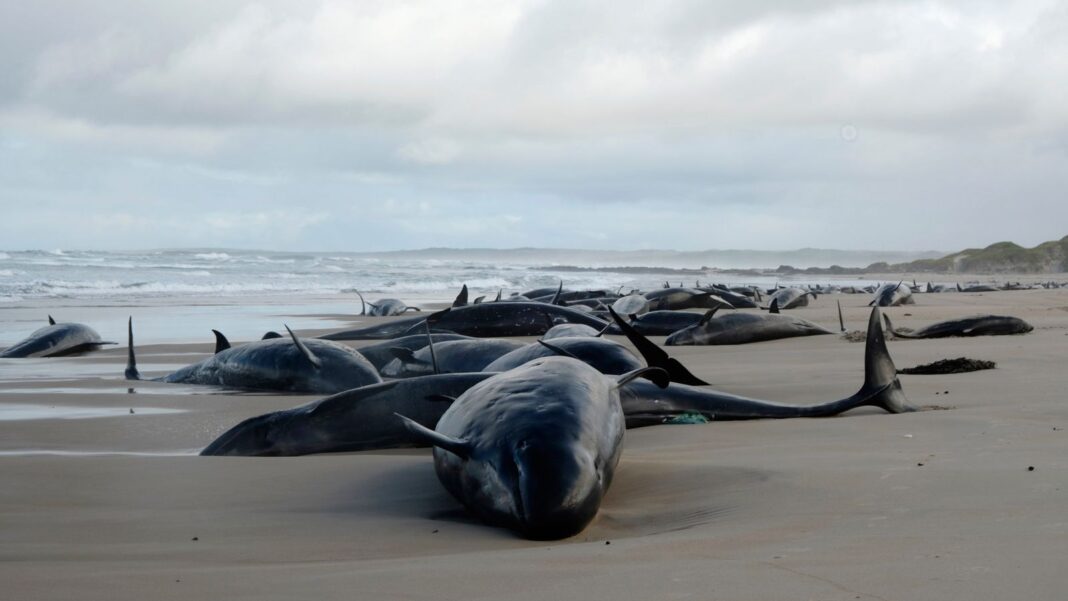More than 150 false killer whales have been stranded on a remote beach in Tasmania.
Officials said that marine experts including veterinarians were at the scene in Arthur River, on the northwest coast of the Australian island.
Of the 157 beached whales, only 90 were still showing signs of life, Department of Natural Resources and Environment liaison Brendon Clark said.
This content is provided by Datawrapper, which may be using cookies and other technologies.
To show you this content, we need your permission to use cookies.
You can use the buttons below to amend your preferences to enable Datawrapper cookies or to allow those cookies just once.
You can change your settings at any time via the Privacy Options.
Unfortunately we have been unable to verify if you have consented to Datawrapper cookies.
To view this content you can use the button below to allow Datawrapper cookies for this session only.
Only a few hours earlier, the department had said 136 were alive.
The chances of beached whales surviving are low, as their bodies are crushed by their own weight when outside water.
Pic: AP/NRE
On top of that, the inaccessibility of the beach, along with difficult ocean conditions, complicated the response.
Speaking late on Wednesday, Mr Clark said that authorities were still determining if any of the whales, which can weigh from 500kg to 3,000kg, could be refloated.
Speaking to reporters he added: “To try to refloat the animals directly back into that surf would be challenging and then of course that would also present some enormous safety risks for our staff and personnel.
“We’ve got our experts on site now that are doing … all that they can to determine what methodology will be implemented to try and find a suitable and a humane response to this particular very challenging incident.”
The stranding was the first by false killer whales in Tasmania since 1974, he added.
It wasn’t clear what may have caused the stranding, and carcasses would be examined for any clues, authorities said.
Read more from Sky News:
A$AP Rocky found not guilty
The Jam drummer dies aged 69
Large sinkhole forces street closure

Pic: AP/Jocelyn Flint

Pic: AP/Jocelyn Flint
The whales were discovered on Tuesday afternoon, but by Wednesday some could have been stranded for as long as 48 hours.
Arthur River local resident Jocelyn Flint said her son had discovered the stranded whales around midnight, while fishing for sharks.
She said she had visited the scene.
“The water was surging right up and they were thrashing. They’re just dying, they’ve sunk down in the sand. I think it’s too late,” she said.
She added: “There are little babies. Up one end, there’s a lot of big ones. It’s sad.”







